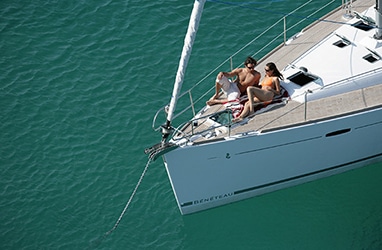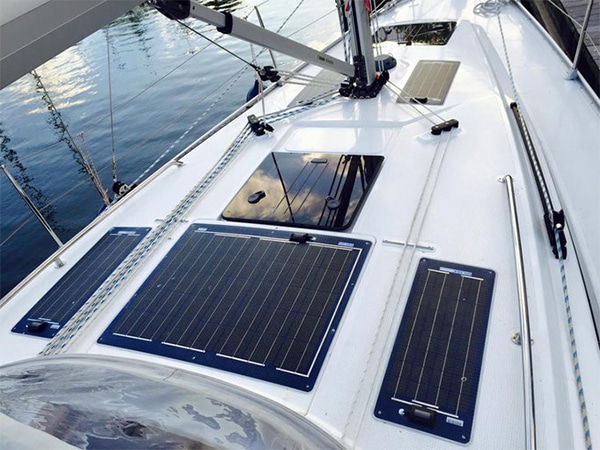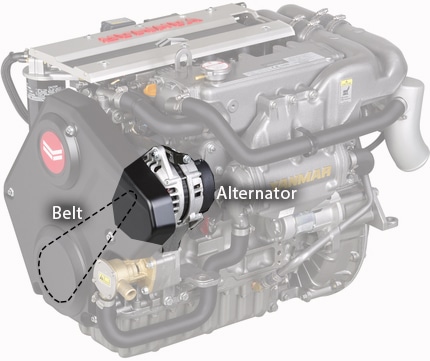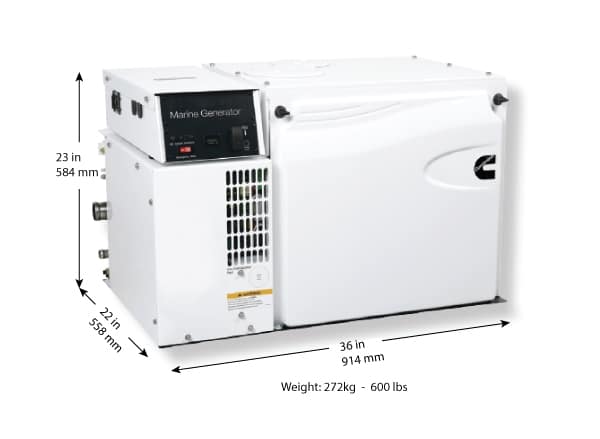
This article is an excerpt from NauticEd’s Bareboat Charter Course, a comprehensive online course that equips you with all the necessary skills and knowledge to successfully charter a yacht. The Bareboat Charter course is part of the Bareboat Charter Master bundle of online courses, fully preparing you for near-coastal sailing and sailing charters.
You can learn to sail and improve your sailing with NauticEd, the international leader in sailing education.
Topping Up your Energy on a Sailboat
Solar Charging:
Solar seems like a great option these days. Solar produces about 150 watts per square meter. So if you can afford 2 sq meters (6ft x 3ft) of space on a hard top of your boat, you can produce 300 watts of power under overhead and bright sunshine. Typically there are clouds and the sun is not overhead. Assuming ideal conditions, however, in 6 hours of bright sunshine, you can recharge your energy stock 1.8 kW. Which is not even ½ of the daily usage previously shown.
Not to take anything away from solar. But rather to put the math in perspective. Just because you have solar panels on your boat doesn’t mean you’re good to go all day. Solar is a good plan for part of your requirements per day. Oh, and don’t forget about cloudy days.

The Engine Alternator:

The alternator will put out about 1kW when operating above 1500 RPM. With two hours of engine running, you can produce 2 kW.hr of energy.
So even with solar and two hours of running the engine, you are barely keeping up.
For this reason, yacht charter companies will have you run the main propulsion engine for four hours per day. Two hours in the morning and two hours in the evening to produce 4 kW.hrs. If you use all the devices above you are still falling short of the required 4.4 kW.hrs.
Four hours of engine running per day seems like a lot and it just seems unnecessary and disproportionately balanced in your mind – a giant engine that is all-powerful needs four hours to charge two unseen batteries below decks!!!
As an aside, as Charter Agents also, NauticEd gets phone calls all the time from its charter customers complaining that the charter company gave them faulty batteries and now all the food is off in the fridge. Or complaining that the fridge is warm and broken – and there is an annoying alarm going off in the middle of the night. The alarm is the low voltage alarm.
An Onboard Generator:

A typical onboard generator is rated at about 8kW. In one hour, it can produce 8 kW.hrs. Thus you should run it for at least an hour or so a day to keep up with your energy drain. Probably best to run it for half an hour in the morning and half an hour in the evening.
You can learn more in the Bareboat Charter Online Course....
The Bareboat Charter online sailing course is your go-to resource for planning an unforgettable sailing vacation. This comprehensive online course equips you with all the necessary skills and knowledge to successfully charter a yacht. Upgrade to the Bareboat Charter Master bundle of courses to fully prepare for near-coastal sailing and sailing charters.
